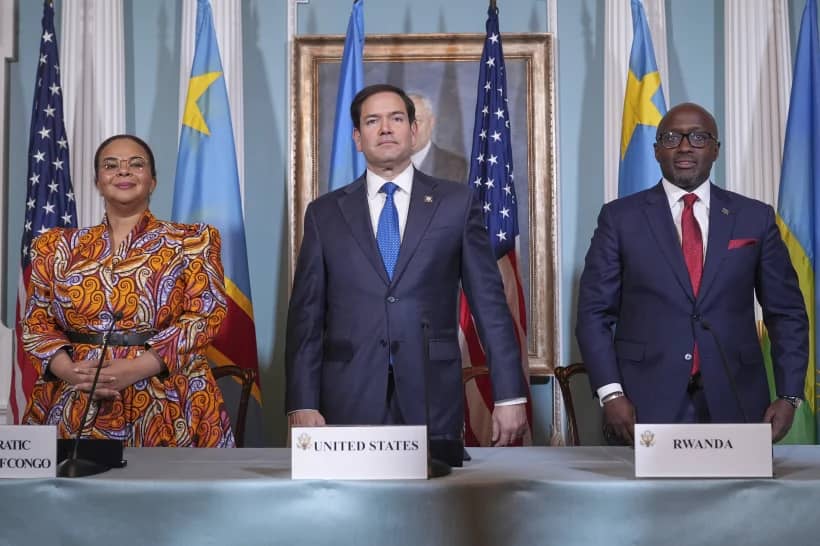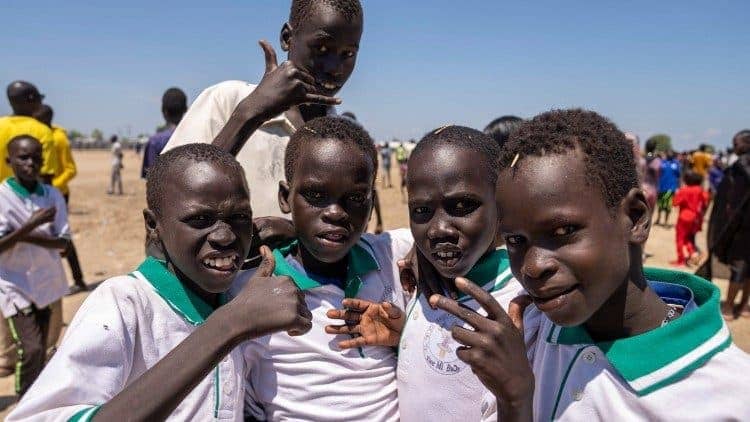YAOUNDÉ, Cameroon – Africa will have to “do more with less” if there is a serious outbreak of COVID-19, according to one Catholic charity active on the continent.
According to the World Health Organization, nearly 200,000 people in Africa might die from the coronavirus, with many more dying of other diseases and health emergencies if the COVID-19 pandemic stretches the fragile medical infrastructure on the continent to the breaking point.
“If God forbid, there is a serious and deadly outbreak in some areas, many will be without help. The struggling poor Church of Africa will probably be asked to do more with less,” said Edward F. Clancy, Director of Outreach for the Aid to the Church in Need.
Clancy also told Crux that Christians in the region are facing other troubles, including attacks by Islamist groups.
“Violent extremism has spread down from Libya and received funding from the Gulf States to destructively affect impoverished nations that were ripe for unrest. Countries like Mali and Niger have become breeding grounds for the export of terrorism to neighboring countries,” he said.
“Back in February, there were two very violent attacks against Christians in Burkina Faso killing nearly 30 people and injuring at least 18 more,” Clancy added.
Following are excerpts of Clancy’s conversation with Crux.
Crux: How has COVID-19 impacted the Church in Africa?
Clancy: The greatest impact of the COVID pandemic may very well be the economic stress that will befall regions of Africa where the Church and people are very poor. These communities rely on outside support to help struggling families and educate children. If God forbid, there is a serious and deadly outbreak in some areas, many will be without help. The struggling poor Church of Africa will probably be asked to do more with less.
Many Church authorities have renewed appeals for donations and tithes during the crisis, despite the economic effects people are feeling. What do you say to those who accuse the Church of being insensitive to the suffering of Christians within the context of the devastating health situation?
It may seem insensitive, but these are very difficult times for organizations that depend on donations to continue their work. The Church is no exception. Without the support of tithing and donations, much of the necessary work that the Church performs will stop and the very poorest and most vulnerable will suffer the most. No one should be asked to give beyond their means, but even the smallest donations can help the Church continue her vital work.
What has been Africa’s share of assistance from Aid to the Church in Need, and what in particular is the Church on the continent requesting?
Africa is home to more than 26 percent of the world’s Catholics and 30 percent of all ACN’s project aid goes to Africa. Our greatest areas of support are building projects, emergency aid for refugees, formation of priests and nuns and Mass stipends.
There has been an increase in requests to help the Church support those who have been traumatized by terrorism. We recently approved funding for a rehabilitation and recovery center in Maiduguri, Nigeria to assist in the healing of hundreds of victims of Boko Haram, Islamic State West Africa Province and Fulani attacks.
We have responded as we always have, by trusting that God will provide and work to best support projects that will have the most impact to assist those who suffer for their faith. We have excellent coworkers in throughout Africa. They do great work with the help we provide.
Across the continent, Christians have come under attack. Where are the most attacks recorded and why?
The area that has seen the greatest growth in terrorist attacks against Christians has been the Sahel and Sub-Saharan Africa. Violent extremism has spread down from Libya and received funding from the Gulf States to destructively affect impoverished nations that were ripe for unrest. Countries like Mali and Niger have become breeding grounds for the export of terrorism to neighboring countries. The most affected countries are those with poor economies, corrupt or weak governments and poor education systems.
How does the Church deal with this?
Back in February, there were two very violent attacks against Christians in Burkina Faso killing nearly 30 people and injuring at least 18 more. Because of these attacks, dozens of Christian families were forced to flee their villages and seek safe haven in the town of Dori. The bishop of Dori has been helping these IDPs even though his diocese has little means to do so.
What should be the attitude of Christians when they face such attacks?
I wish there was an easy answer for this. During my 20 years working to help the persecuted Church, I continually am amazed by the tenacity and courage that Christians of Africa have shown in the face of terrorism. I pray that they keep the faith and be examples to the world. But most importantly, I pray that they will not have to continue to face attacks.














